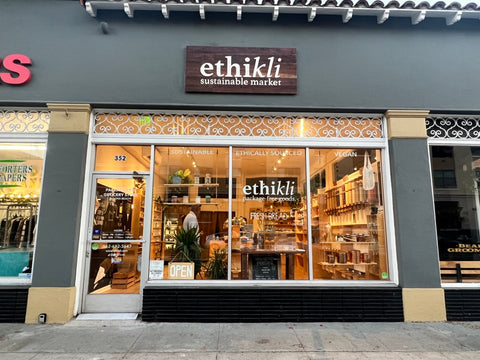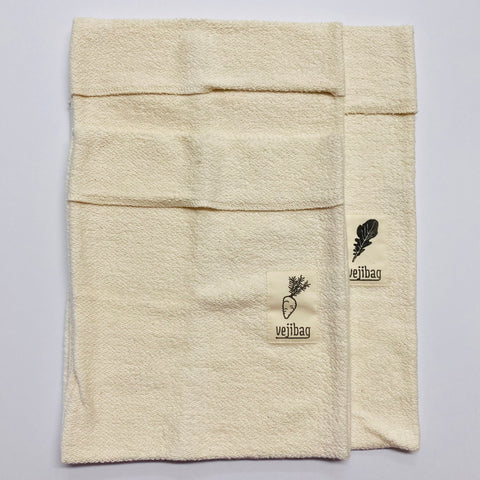
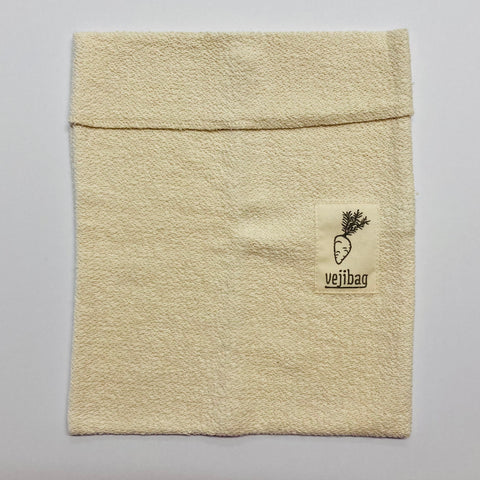
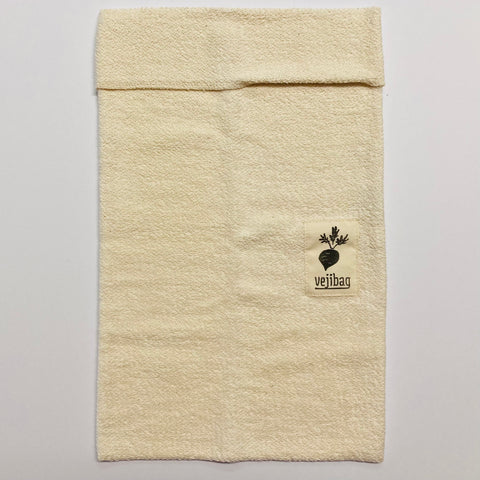
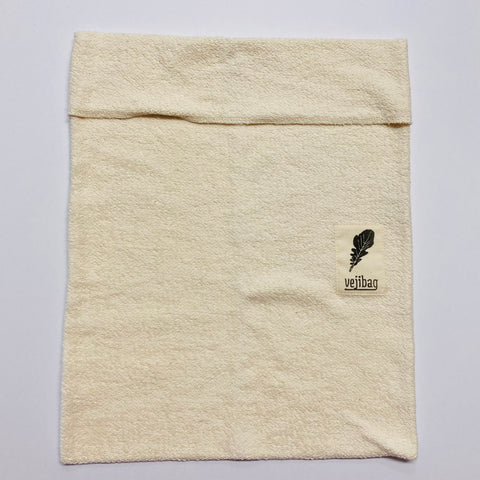
Freshness Extending Produce Bag
Freshness Extending Produce Bag from Vejibag
Vejibag is the healthy, eco-friendly alternative to plastic for storing and preserving vegetables in the refrigerator. Designed to keep moisture-loving greens, carrots, celery, cucumbers, radishes, and more fresh and crisp for up to two weeks, Vejibag creates a humid yet breathable environment that prevents wilting and extends freshness.
Just like cut flowers need water, vegetables require moisture to stay vibrant. The absorbent, organic cotton fabric of Vejibag maintains the perfect level of humidity, allowing slow evaporation that circulates air and keeps produce breathing. No more sad, wilted greens or squishy veggies—Vejibag ensures long-lasting freshness without plastic waste!
How to Use
- Wet the bag, then wring it out. Start by dampening the bag and wringing out excess water to create a moist, breathable environment.
- Rinse vegetables. Wash your vegetables, remove any damaged parts, and gently shake off excess water. No need to spin lettuces or greens—Vejibag will regulate moisture naturally.
- Store and re-dampen as needed. Place in the main refrigerator compartment or a slightly opened crisper drawer. If the bag dries out after several days, simply re-wet it briefly under the faucet.
Materials
Made from 100% organic French terry cotton, sourced from the Texas Organic Cotton Marketing Cooperative and hand-sewn by employee-owned Opportunity Threads in Valdese, North Carolina. Completely non-toxic, undyed, and GOTS-certified.
Dimensions
- Standard: 11” x 12”
- Large: 11” x 17”
- X-Large: 14” x 17”
Care & Storage
Vejibags are machine washable and dryable. Turn inside out and wash with fragrance-free detergent. Hang in the sun to dry or machine dry (expect 10% shrinkage on first wash due to 100% cotton material). For stain removal, use an oxygen bleach or an eco-friendly solution made of 1 cup of 3% hydrogen peroxide and 2 tablespoons of washing soda.
Packaging & Disposal
Package-free, completely plastic-free, and biodegradable. At end of life, this product can be cut up into small pieces and composted.

